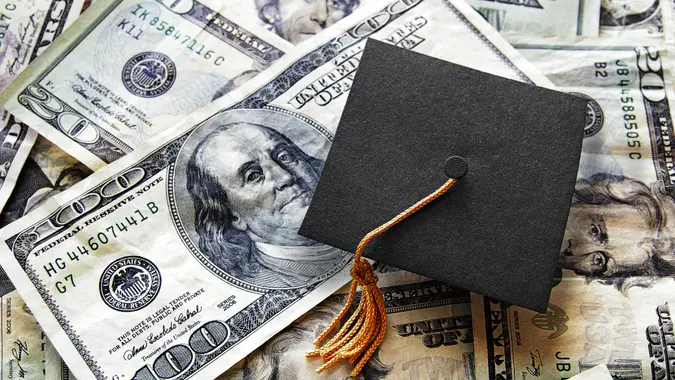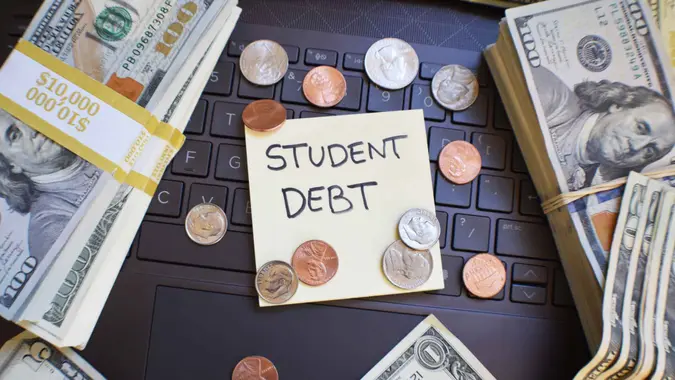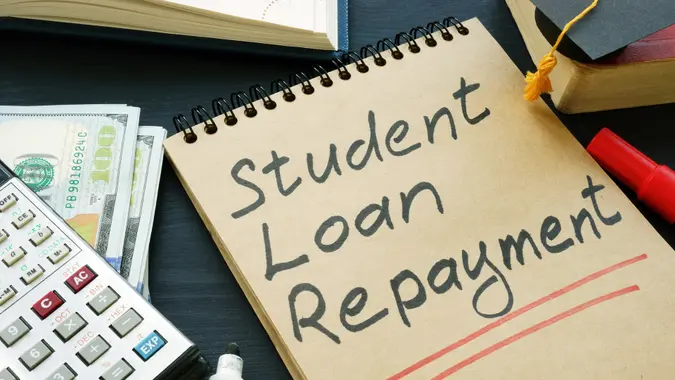How Much I Pay Monthly To Wipe Out Student Loan Debt Faster

Commitment to Our Readers
GOBankingRates' editorial team is committed to bringing you unbiased reviews and information. We use data-driven methodologies to evaluate financial products and services - our reviews and ratings are not influenced by advertisers. You can read more about our editorial guidelines and our products and services review methodology.

20 Years
Helping You Live Richer

Reviewed
by Experts

Trusted by
Millions of Readers
Let’s be real — student loans aren’t exactly the kind of thing you want hanging around forever. According to Department of Education data, nearly 43 million Americans owe a total of $1.6 trillion in federal student loans as of the end of 2024.
While the monthly payments might feel manageable now, speeding up your payoff game can actually make a huge difference. Not only can you save on interest payments, but you’ll also free yourself up financially for the things you actually want to spend money on — like travel, a home or even just guilt-free brunches.
GOBankingRates spoke with Dennis Shirshikov, professor of Finance at City University of New York and Head of Growth and Engineering at GrowthLimit, to discuss why paying off student loans faster isn’t just about getting rid of debt; it’s about getting your freedom back a little sooner.
How Much He Paid Off Each Month
“I budgeted $1,200 a month, or about 20 percent of my take-home pay — enough to be aggressively paid off — while not entirely destroying a sustainable lifestyle,” said Shirshikov.
After obtaining his total debt, he said he reversed-engineered a five-year payoff horizon and stress-tested his budget to ensure there were always enough funds for rent, utilities and emergencies.
Strategies Used
Shirshikov recommended the debt-avalanche approach with bi-weekly payments to limit interest and term.
“I even saved nearly $1,000 in interest and shaved nearly two months off the schedule by refinancing 6.8% loans at 3.9% and splitting two $600 installments up each to spread the payments out every other Friday.
He said he also automated stair-step raises — each time he received a 3% raise at work, he increased his payment by that much.
How He Got Creative
Shirshikov said thinking outside the box for combating his debt was crucial, and recommended using non-standard or more creative methods to accelerate your payments. He explained that the gig economy was his private debt-killer, as he purchased low-cost textbooks on Amazon for resale and did rideshare in the Washington D.C. area during peak hours to maximize potential earnings.
On top of $1,000 per month, he said his sales and weekend drives made him an extra $5,000 over the course of the year that went straight to loans.
“I was also able to gain $100 per month through my job’s student loan assistance benefits that I just got, on top of all the other new budgeting.”
 Written by
Written by  Edited by
Edited by 
























